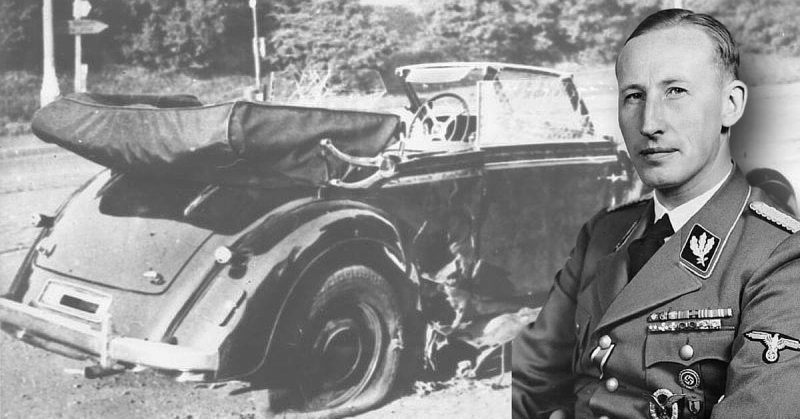Unless you are a WWII aficionado, it’s likely you don’t have all the facts about every Nazi official memorized. However, every individual who played a major role in the Nazi regime has a story to be told. Here are a few facts you may not know about high-ranking Nazi officer Reinhard Heydrich, a dark figure in an even darker period of wartime history.
1. He had multiple job titles over the course of his life.
Heydrich was known to be one of the main architects of the Holocaust. Appointed by Hitler himself, who called him “the man with the iron heart,” Heydrich was a senior group leader in the SS, as well as the chief of police. He further served as the Deputy or Acting Reich Protector of Moravia and Bohemia (now the Czech Republic).
At one point, he was the reigning president of the International Criminal Police Commission, otherwise known as Interpol today. During the Wannsee Conference in January 1942, he oversaw the final plans to deport and promote the genocide of the Jewish population in Europe.
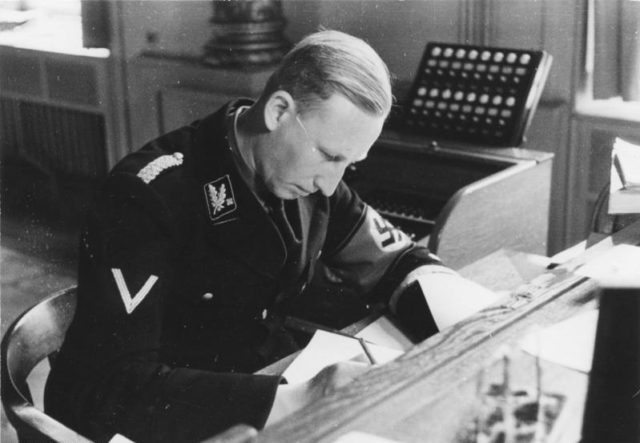
2. He helped coordinate Kristallnacht.
On November 9-10, 1938, an SA military unit and German civilians banded together to carry out what is called the “Night of Broken Glass,” an attack against Jews in Nazi-led Germany, as well as parts of Austria. Businesses, storefronts, and synagogues had their windows smashed out, causing the streets to be littered with the broken glass that gives this day its name.
This was the beginning of the mass deportation of the Jews and led to the start of the Holocaust. Hundreds of Jews perished in the attacks while over 30,000 were arrested and sent to concentration camps. Heydrich was the main enforcer behind this operation and the preceding events thereafter.
3. He grew up in a house of great financial means and musical appreciation.
Heydrich’s father was Richard Bruno Heydrich, a talented composer and opera singer. His mother, a pianist herself, would teach students at the Halle Conservatory of Music, Theatre, and Teaching, which was founded by Heydrich’s father. Due to this artistic upbringing, he was introduced to music at an early age and took an interest in playing the violin. His talent and love for music impressed many of the society elite that his family grew up in, which seems surprising for a man with such hatred and dark ideas about the world around him in his later military career.
4. He had a troubled childhood.
While a love for music and artistry would seemingly create a happy atmosphere in a family home, Heydrich grew up under strict rules by his father. His brother Heinz and him would practice fencing by inventing pretend duels to learn strategy and sportsmanship.
His father, a German nationalist, was intent on instilling patriotic values in his children as well. While Heydrich was an intelligent and dedicated student, he was bullied by other kids, making him shy and insecure. He was especially unhappy about his high-pitched voice, and other students would tease him about having supposed Jewish ancestry – a factor that may have spawned his hatred for those of Jewish descent.
5. He was dismissed from the German Navy for his romantic affairs.
Heydrich served almost ten years in the Navy, moving his way up the ranks quickly and gaining admiration from his fellow officers. However, he eventually ended up being dismissed for misconduct due to his penchant for female dalliances. In 1930, he met a woman named Lina von Osten, a Nazi Party member he quickly became enamored with, and they were abruptly engaged before long.
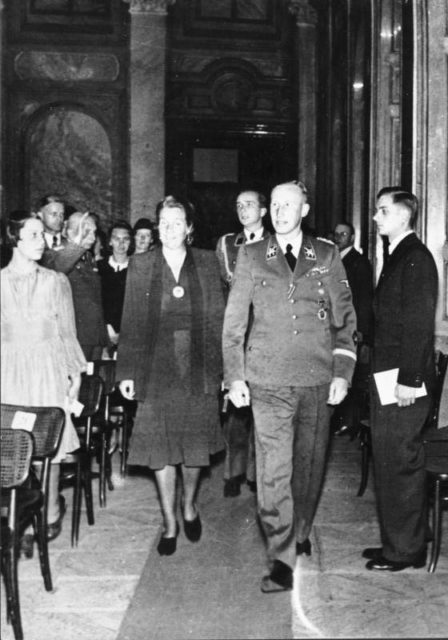
However, apparently Heydrich was already involved in a prior engagement to another woman, and he had broken off their union for his new fiance instead. This act was deemed as more than simple bad behavior, and he was charged in 1931 with “conduct unbecoming to an officer and gentleman” by the Navy administration. He was released by April of the same year, which was a devastating blow to his otherwise upstanding career.
6. Heinrich Himmler was impressed by him immediately
While Himmler was planning a counterintelligence division for the SS unit, he was persuaded by a friend of von Osten’s to interview Heydrich for the job of managing this project. Initially, Himmler canceled the appointment, but von Osten ignored this news and sent Heydrich packing to meet with Nazi officials anyway.
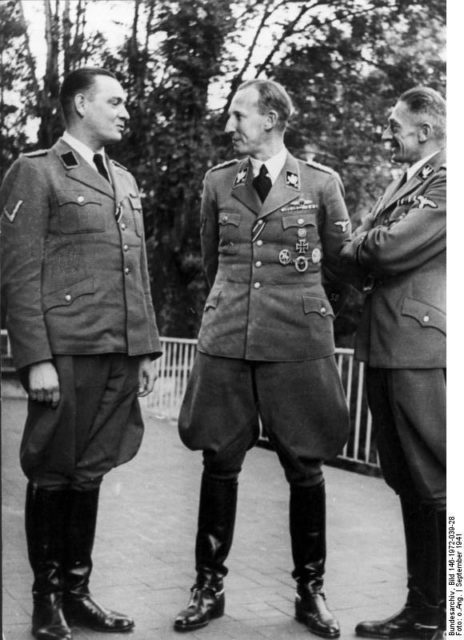
Himmler agreed to the interview regardless and was immediately taken by his plans for the new operation. Heydrich was hired in the blink of an eye, and once again made his way up through the rankings quickly and efficiently. Himmler even promoted him to SS Major as a wedding gift.
7. He was assigned to help organize the Berlin Summer Olympics in 1936.
The Nazi party decided using the games as a tool for Nazi propaganda would be a great way to further their plans, and they sent out Goodwill ambassadors to try and promote their cause to those countries who resisted Nazi policies, such as antisemitism. However, anti-Jewish sentiment remained forbidden from the games. Despite this, Heydrich was rewarded for his work in the organization, and he received a German Olympic Games Decoration as a gift for his efforts.
8. He tricked the Czechs into thinking he was on their side.
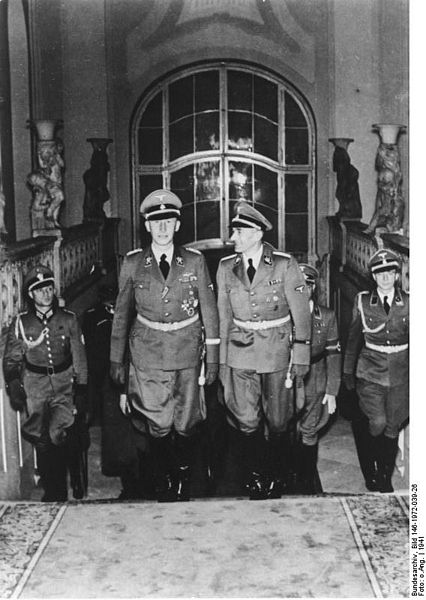
Once Heydrich became the Acting Reich Protector in Prague, he slowly worked his way into the minds of the populace. He arranged events for the workforce, appearing as though he was helping them find work. He would provide food and also free shoes, which were distributed to those who were impoverished.
He increased pension and even enacted “free Saturdays” for the labor force to take time for rest and relaxation with their families. Despite these many signs of goodwill towards the Czechs, Heydrich was underhandedly seeking to eradicate them the entire time. He was hoping to have the entire area to be “Germanized” as quickly as possible.
9. He was assassinated in a Mercedes Benz.
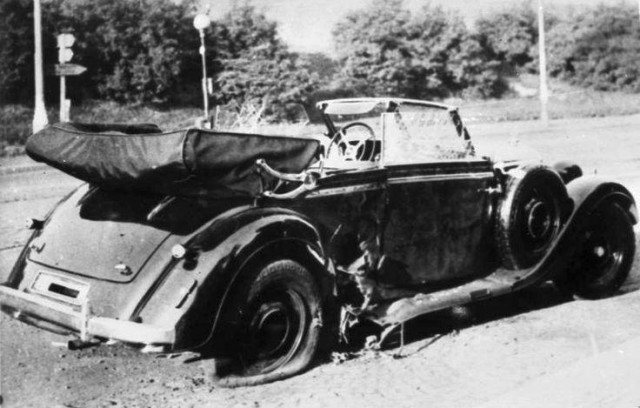
The Czechoslovak government, exiled to London, was intent on taking down Heydrich. So the British Special Operations Executive (SOE) trained a team of assassins to carry out this plan of execution. The team was led by Jan Kubis and Jozef Gabcik. On May 27, 1942, Heydrich was on his way to meet with Hitler.
As he was rounding a winding curve in the road, Kubis and Gabcik carried out their operation. Gabcik’s gun failed to fire at Heydrich, but they’d been spotted, and Heydrich ordered his driver to stop so he could confront them. While the vehicle was stopped, Kubis threw a bomb that hit the rear of the vehicle, exploding on impact. Heydrich was wounded badly on his left side and taken to a hospital, where he later fell into a coma and died.
10. Heinrich Himmler gave the eulogy at his funeral, and Hitler also attended.
Two funerals were held for Reinhard Heydrich’s death, one in Prague and one later in Berlin. Heydrich had a decorated war record already, but he was awarded the highest grade of the German Order, the Blood Order Medal, by Hitler who left it with his others on his funeral pillow.
